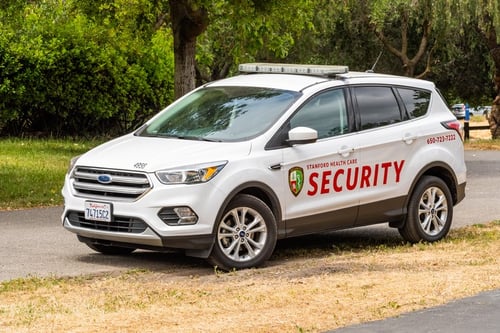The Silvertrac Extra
Pros & Cons of Using GPS for Security Guard Tracking
Maintaining accountability is one of the most difficult parts of running a security company. You can’t watch your officers 24/7, and when something goes wrong, the first question a property manager will ask is “where was your guy?”
If you don’t have an answer, you could be in danger of losing the contract.
To combat gaps in accountability, many companies use GPS systems to track officer movement and provide confirmation of an officer’s presence on the property. In some systems, both supervisors and clients can log into a security patrol software portal to view GPS maps, see where officers are on the property, and ensure they’re moving along their guard tours.
However, security guard tracking with GPS doesn’t necessarily provide a high level of accountability on its own. This article will look at a few pros and cons of using GPS tracking systems in your security company and what you can do to make the most out of them.
PRO: You always know where your security officers are
The most obvious value that a GPS-based security guard tracking system offers is taking away the ability to “game the system.” Is your officer ducking out to grab a coffee or take a nap in their car? GPS can tell you.
Some GPS-enabled guard tour systems even allow supervisors to set up geofencing around properties that trigger automatic alerts if guards aren’t in the right place at the right time.
PRO: Defend against false claims
If an angry client calls and says your officer wasn’t on-site at some point during a shift, GPS records are an easy way to resolve the situation. A guard tour system that uses GPS will show you and your client where all of your officers are or have been, ensure they’re performing their guard tours to completion, and even help track your service vehicles.
Security guard tracking software like Silvertrac records your guard’s GPS location with each checkpoint hit and report entry, giving you both live and historical views of officer location.
Learn more about our Digital Guard Tour System here
PRO: Efficient mobile patrols

Beyond accountability, a GPS system can be used to make sure mobile patrols are safe and efficient. Certain mobile patrol software uses GPS to keep track of speeding, hard stops, and fast acceleration in order to offer a comprehensive view of your officers’ driving habits.
GPS tracked mobile patrols can also give management an idea of how thoroughly a security vehicle patrol is being executed — after all, an officer won’t be able to perform a complete survey on a property at 35 MPH. Monitoring the way your team drives can help ensure the long life of your vehicles as well.
Lastly, using a GPS system with your mobile patrols can give you valuable information to make your patrols more cost-effective. By tracking all of your mobile patrol routes, you might catch some inefficiencies that - when removed - could bring down the cost of your patrols.
Check out this Mobile Patrol Cost Calculator
CON: GPS can lead to a false sense of security
GPS-based security guard tracking can show that an officer was on site, but GPS tracking on its own can’t prove that the time spent on site actually provided value to the customer. For many companies, GPS used by itself as an accountability measure can lead to a false sense of security that the job is being done right.
Full accountability involves more than just being there. It means more than even hitting basic checkpoints on a property walk. Officers should be providing a service for clients that goes above and beyond, covering everything from tracking hazards to documenting potential oversights that could lead to future incidents. In order to do this properly, they need the right tools, and GPS alone isn’t up to the task.
CON: GPS doesn’t provide full accountability
Security guard tracking is an important piece of effective guard management, but without other processes in place, it will only tell part of the story.
On the other hand, a complete guard tour system is designed to be a communication and documentation tool that provides end-to-end coverage. Silvertrac can do everything that a GPS-only system does — tracking officers and their movements — and also provides a platform for documenting what they actually get done during a site walk or patrol.
When an incident occurs on a shift, guard management software provides the tools needed to conduct thorough incident reporting and communicate with management, clients, and other stakeholders.
In addition, when putting together reports, GPS alone doesn’t provide you with all of the data you need to establish trends and illustrate the value your company is creating for the client. That can be a major oversight when it comes time to upsell a customer on additional services or ask for referrals.
GPS is a valuable tool, but it’s not the be-all and end-all for security companies. When you’re focused on selling quality of service, you need something beyond GPS tracking. Guard management software that incorporates GPS technology as well as photographic documentation, detailed notes, and other accountability features is more appropriate for your needs.
In Summary:
While GPS is a necessary part of effective security guard tracking, it doesn’t illustrate all the routine preventative measures that make your security team valuable. Choosing a guard tour system like Silvertrac, which incorporates GPS tracking and reporting along with other accountability features, will help your company prioritize communication and client success.




